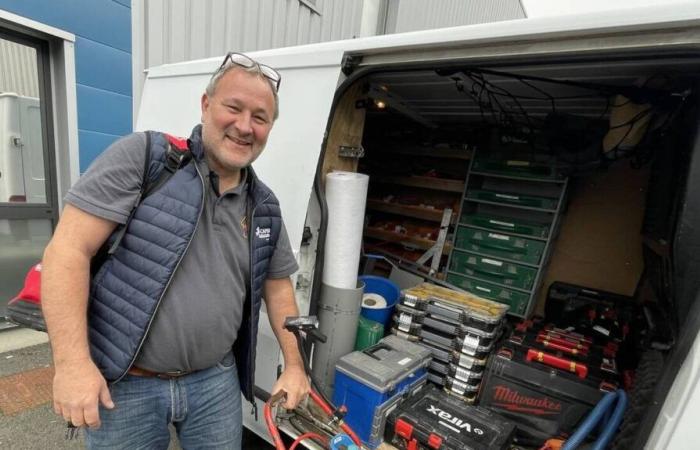Of course he didn't “no miracle solution” ! But, a plumber-heating engineer for twenty years, Arnaud Delaunay, based in Saint-Herblain, reminds us of some basic rules when it comes to heating.
Read also: “We'll turn on the heating later”: In the meantime, duvets, sweaters and stoves serve as backup
1. Insulate your home
“The only solution to reduce energy consumption and save money is to make your home as airtight as possible. And therefore, invest in insulation: the roof, the walls, the openings. It's a budget, but certain work is eligible for aid. Another important element: carry out an in-depth thermal study of your home with a diagnostic company, to best adapt the heating solutions. And for serious and personalized advice, I always say to favor the use of local craftsmen. »
2. Choose the right boiler
“It’s not just heat pumps for heating, even in 2024! The installation of these systems is very supported by state aid because it is carbon-free energy, but I just say to customers: be careful, then, of the costs of repairing parts, which are often high. I mainly work in the city center of Nantes, an area connected to the city gas network. Gas heating remains a more than viable solution in this case. And contrary to popular belief, it is not prohibited! In Loire-Atlantique as elsewhere, gas is becoming greener: it increasingly comes from agricultural methanization. GRDF is committed to supplying 30% green gas by 2030.”
3. 19°C in winter
“A well-heated house is 19°C in winter. And we carefully program the levels of lowering temperatures in the home: two degrees of maximum difference between the daytime and nighttime temperatures. We avoid 16°C at night compared to 21°C during the day, otherwise the boiler consumes too much energy to raise the temperature. Same principle when you are away from home. »
Did you know?
Above 20°C in a home, each degree higher costs on average 7% on the heating bill. In a well-insulated home, the ideal temperature is 19°C during the day (and two degrees lower at night or when you are away for more than two hours). This is what is pointed out, among other advice, by the Alisée association in Nantes (alisee.org) which advises individuals within the framework of France Renov.






